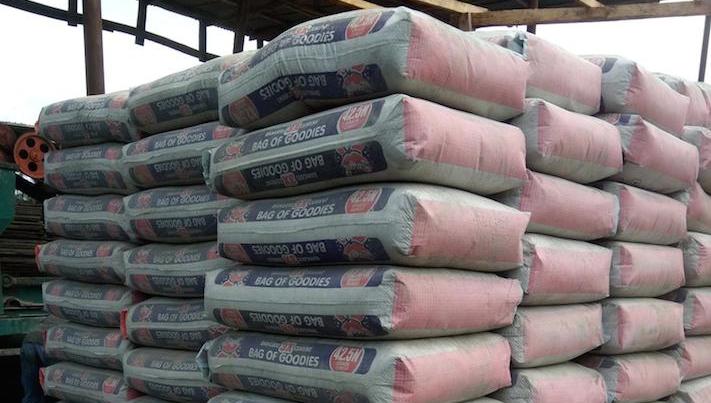Cement is a vital construction material, essential for applications like brickmaking, house plastering, and floor construction. With the rising demand for cement in Nigeria, an increasing number of individuals seek guidance to start their ventures in this thriving industry.
Embarking on a lucrative cement business in Nigeria holds great promise, given its profitability. The buying and selling of cement have become popular, attracting entrepreneurs eager to tap into this thriving market. However, success in this seemingly straightforward venture requires a profound understanding of its intricacies.
This article serves as a comprehensive guide for aspiring entrepreneurs looking to enter the cement business in Nigeria. Whether you are a seasoned entrepreneur or a newcomer, the article walks you through essential steps, highlighting the business’s profitability and estimating the capital required for a successful launch.
Let’s delve into the key steps for a seamless initiation into your flourishing cement business in Nigeria without further delay.
Read Also: How to Start a Ready-to-Wear Business in Nigeria (Full Guide)
How To Start a Cement Business In Nigeria
Starting a cement business in Nigeria can be a lucrative venture if done right. Here’s a step-by-step guide to help you kickstart your journey:
1. Secure Adequate Start-up Capital
The first crucial step in establishing your cement business is securing sufficient capital. This covers registration costs, rent, stocking, and general financing. A budget ranging from ₦400,000 to ₦700,000 is recommended for a smooth start.
2. Conduct Thorough Market Research
Before setting up shop, conduct extensive market research to identify demand, competition, and potential customers. Understand the market size, trends, and buying behavior. This insight will guide you in selecting the ideal location for your business.
3. Develop a Comprehensive Business Plan
Based on your market research, create a detailed business plan outlining objectives, strategies, financial projections, and operations. Include industry analysis, SWOT analysis, marketing strategies, and a management structure. A well-thought-out plan ensures financial discipline in your operations.
4. Register Your Business
Register your cement business with the Corporate Affairs Commission (CAC) and obtain the necessary licenses and permits. This includes business permits, trade licenses, tax identification numbers, and environmental permits. Proper registration enhances credibility and provides contact details for potential customers.
5. Secure a Strategic Shop/Store Location
Whether retail or wholesale, choose a location that is easily accessible and visible to your target customers. A well-situated shop, with ample space for both products and customers, contributes to the success of your business.
6. Procure Goods and Stock Your Store
Purchase various types of cement, including popular brands like Dangote Cement, Ibeto Cement, Elephant Cement, BUA, and Eagle Cement. Stock your store to meet the demand of your target market.
7. Develop Effective Marketing Strategies
Craft a marketing strategy to promote your brand and attract customers. Utilize diverse channels such as advertising, social media, public relations, and sales promotions. Consider reaching out to bricklayers on construction sites to expand your customer base.
8. Implement Sales Strategies
Execute your marketing strategy to attract customers who need cement in your locality. Consider visiting construction sites to directly promote your business to bricklayers and other potential clients.
Is the Cement Business Profitable in Nigeria?
Yes, the cement business is profitable, given the constant demand for cement in construction and block-making activities.
Cost of Starting a Cement Business in Nigeria
The initial investment for starting a cement business in Nigeria ranges between ₦400,000 and ₦700,000, depending on the scale of your business.
Conclusion
Follow these steps diligently, and you can successfully launch and manage a profitable cement store in Nigeria.
FAQS
What is the minimum capital required to start a cement business in Nigeria?
The minimum capital needed to initiate a cement business in Nigeria typically ranges between #400,000 and #700,000. This includes registration fees, rent, stocking, and other operational expenses.
How do I choose the right location for my cement business?
Consider locations that are easily accessible and visible to your target customers. A central location with enough space to accommodate both your products and customers is ideal. Prioritize areas with high demand for construction materials.
What types of cement brands are popular in Nigeria for stocking my store?
Some popular cement brands in Nigeria include Dangote Cement, Ibeto Cement, Elephant Cement, BUA, and Eagle Cement. It’s advisable to offer a variety to meet diverse customer preferences.
What licenses and permits are required to start a cement business in Nigeria?
To operate legally, you need to register your business with the Corporate Affairs Commission (CAC) and obtain necessary licenses and permits. This includes business permits, trade licenses, tax identification numbers, and environmental permits.
How can I effectively market my cement business in Nigeria?
Develop a comprehensive marketing strategy that includes advertising, social media engagement, public relations, and sales promotions. Consider visiting construction sites to directly connect with potential customers, such as bricklayers and builders. Building a strong online presence can also attract a wider audience.





